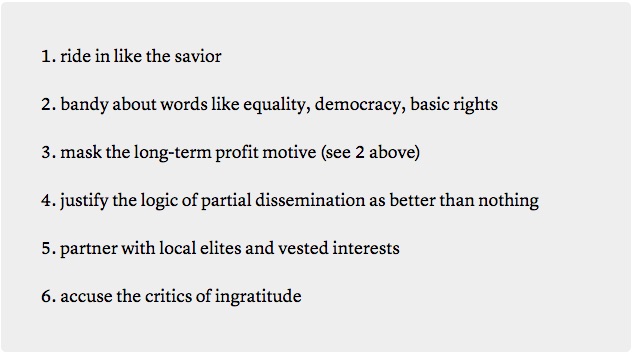Benedict Evans is at the huge annual mobile phone gabfest in Barcelona. On his way he wrote a very thoughtful blog post about the world before smartphones, and why Nokia and Blackberry didn’t see their demises coming.
Michael Mace wrote a great piece just at the point of collapse for Blackberry, looking into the problem of lagging indicators. The headline metrics tend to be the last ones to start slowing down, and that tends to happen only when it’s too late. So it can look as though you’re doing fine and that the people who said three years ago that there was a major strategic problem were wrong. You might call this the ‘Wille E Coyote effect’ – you’ve run off the cliff, but you’re not falling, and everything seems fine. But by the time you start falling, it’s too late.
That is, using metrics that point up and to the right to refute a suggestion there is a major strategic problem can be very satisfying, but unless you’re very careful, you could be winning the wrong argument. Switching metaphors, Nokia and Blackberry were skating to where the puck was going to be, and felt nice and fast and in control, while Apple and Google were melting the ice rink and switching the game to water-skiing.
I love that last metaphor.
In a way, it was another example of Clayton Christensen’s ‘innovator’s dilemma’. It’s the companies that are doing just fine that may be most endangered.
It’s a great blog post, worth reading in full. Also reminds us that mobile telephony was much more primitive in the US than it was in Europe (because of the GSM standard over here), and that Steve Jobs and co really hated their ‘feature’ phones as primitive devices. Evans sees something similar happening now with cars. It’s no accident, he thinks, that tech companies (Apple, Google) are working on cars. Techies hate cars in their current crude manifestations, whereas the folks who work in the automobile industry love them. Just as Nokia engineers once loved their hardware.



